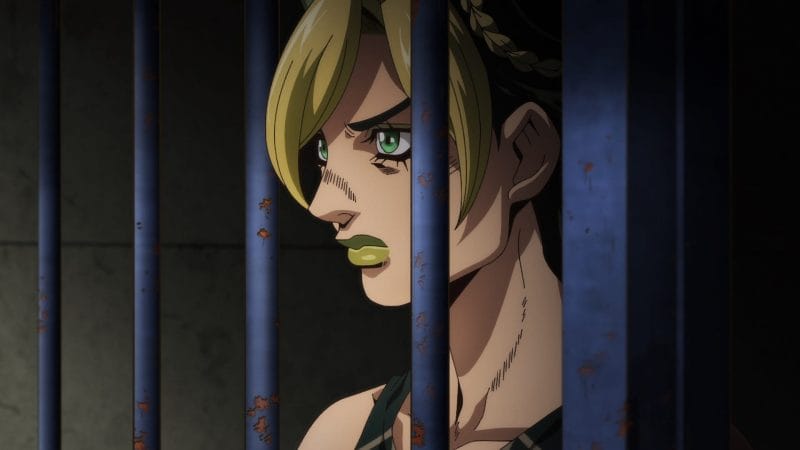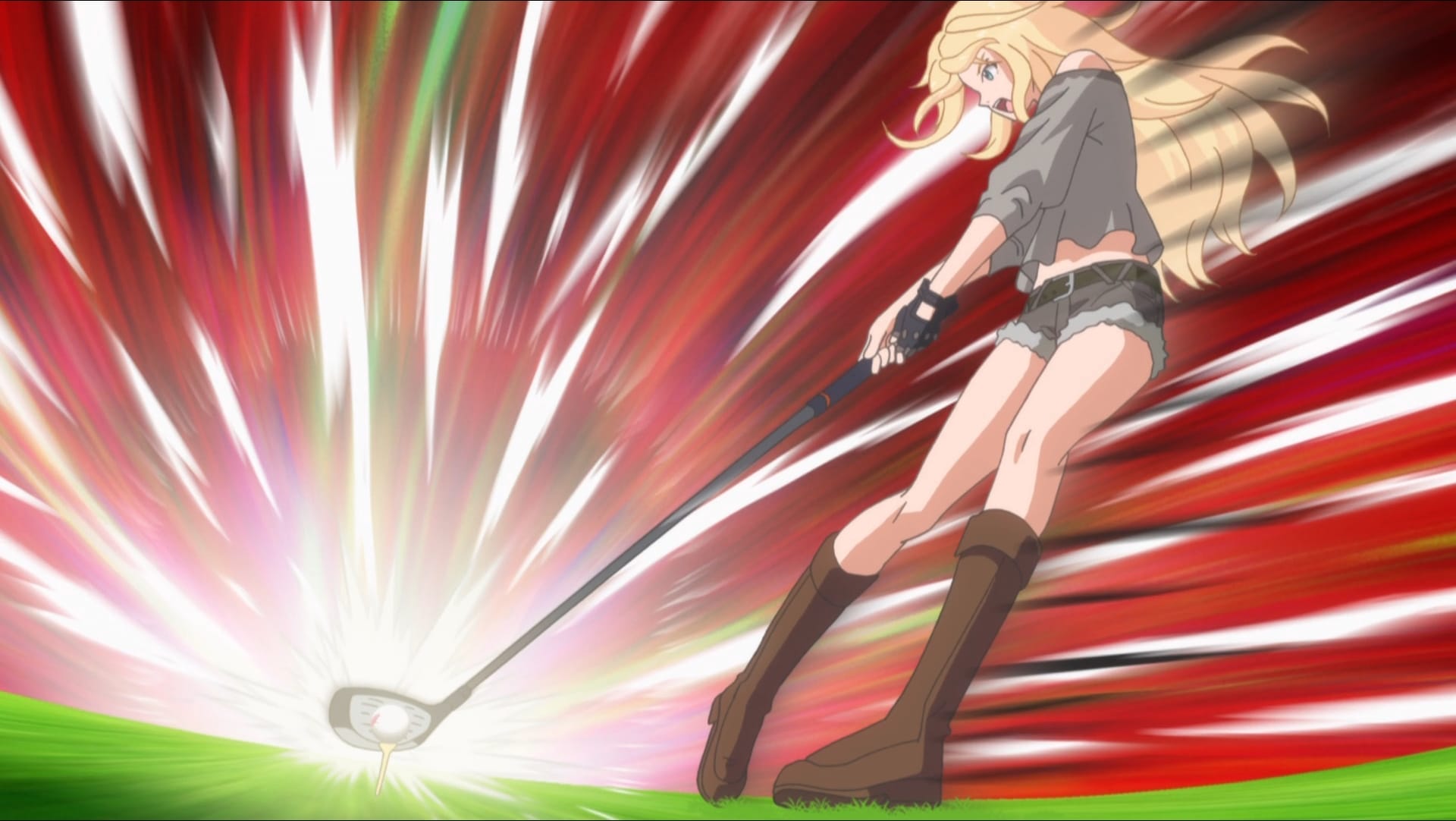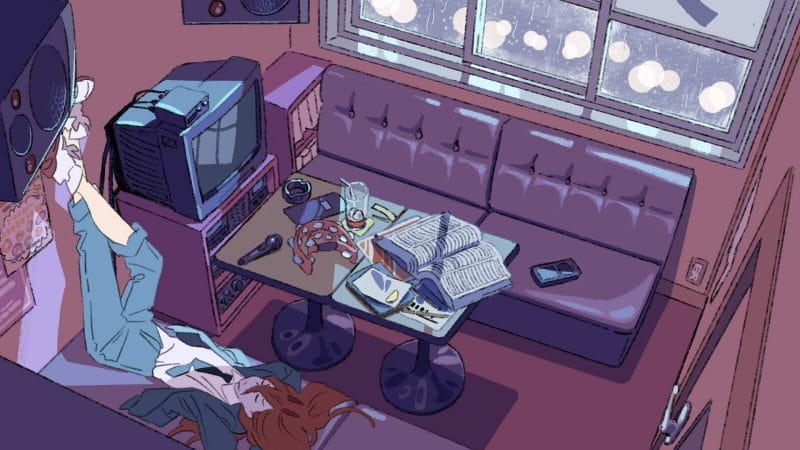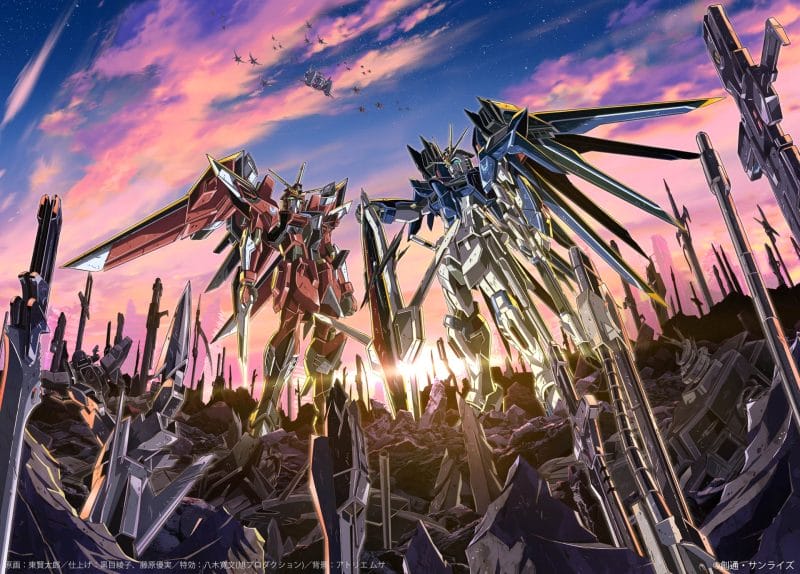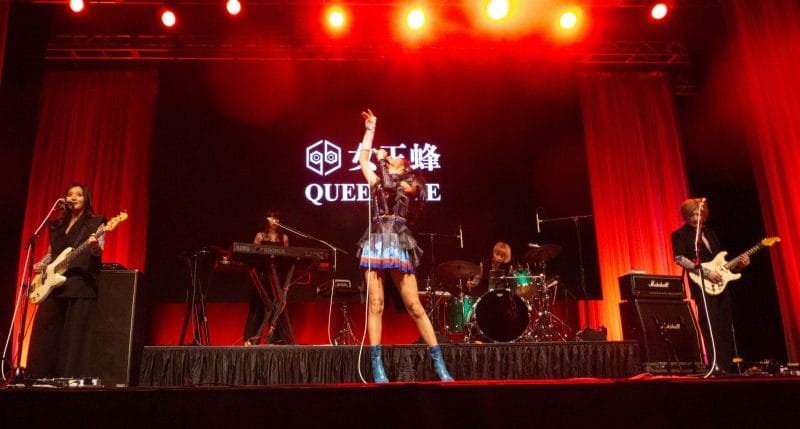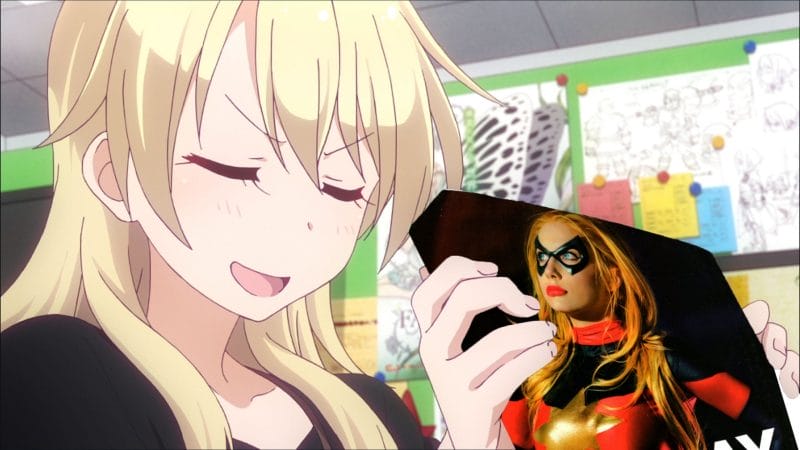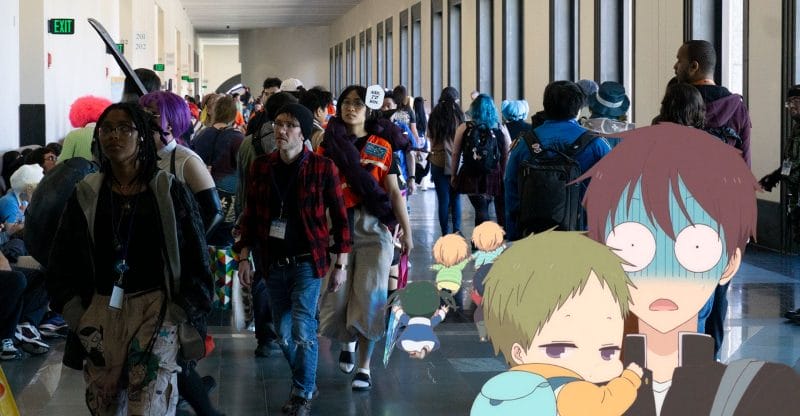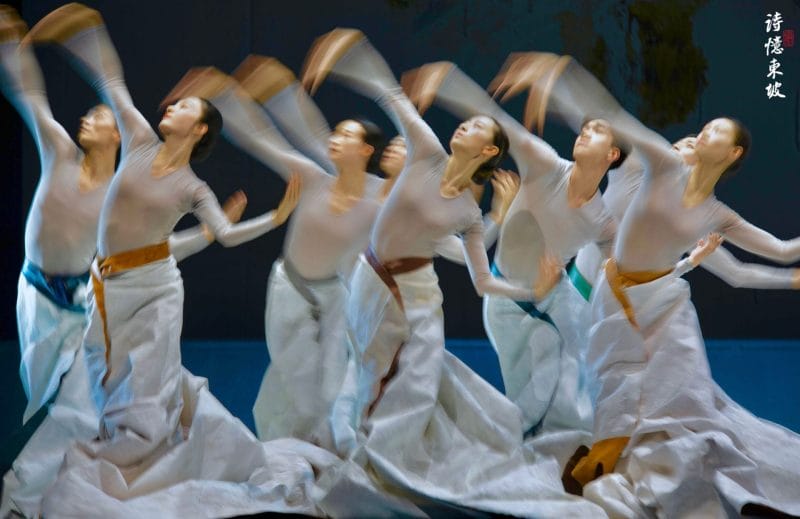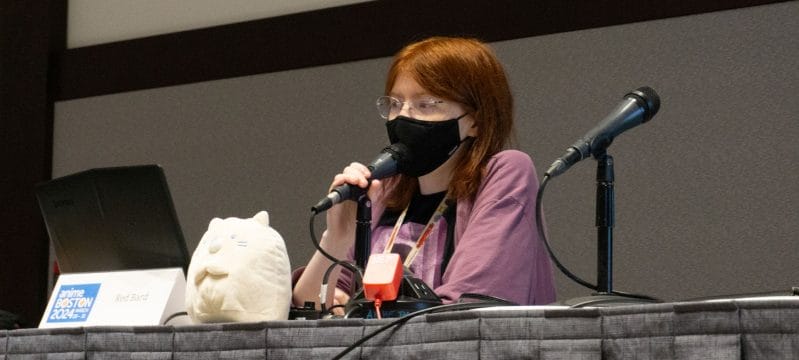Content Warning: Use of transphobic terms in an educational context.
“Kiss Kiss, Fall In Love!”
I’m sure that tune will be in my head for the rest of my life. Since watching Ouran High School Host Club for the first time in middle school, I’ve been hooked. Through the cuteness of the show and the balance between serious and fluffy storylines, Ouran endeared itself to me, but there was something more to it that made it one of my long-standing favorites. That “something” was the queerness of the show, both implicit and explicit. For me, it was one of the first times I saw queerness portrayed on the screen. From Haruhi Fujioka’s gender apathy to her father’s “gender-bending” ways, to the Zuka Club and beyond, Ouran showed me queer people simply living and having a good time. It was something that, in the mid-2000s, wasn’t often seen. Yes, gay men could be found on TV, but other queer people just casually existing was virtually unheard of due to lingering hatred, views of queerness as taboo, etc. In a media landscape that lacked representation, Ouran opened my eyes to what queerness could be.
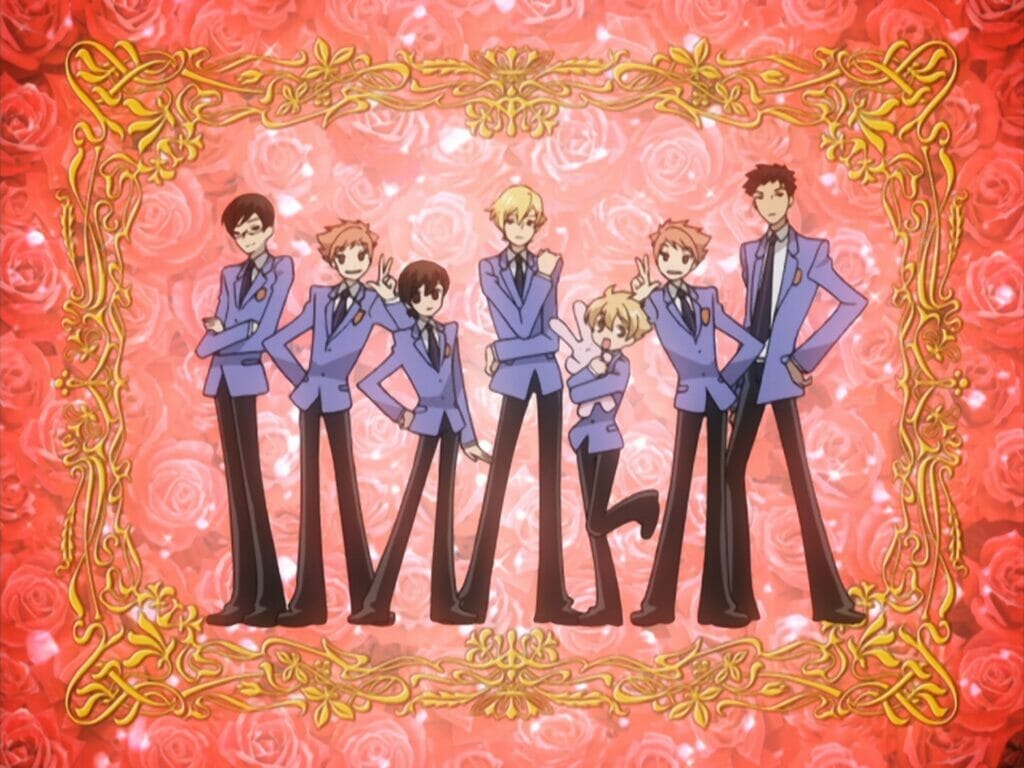
Watching the series today, though, I can recognize the ways in which it doesn’t totally hold up in today’s world. It is, like so much media, a product of its time, rife with slurs, subpar representation, misogyny, and even queer fetishization. Additionally, it must be remembered that the series is a product of early 2000s Japan. While being gay was no longer criminalized at the time, it was still seen as a taboo within the culture. This meant that most of the queer representation was over-exaggerated, presented as a fetish or as a taboo, and wasn’t presented as something accepted. So while Ouran may have been seen as progressive to outside audiences, it was still a product of a time and place that, in general, saw queerness as something abnormal. So while Ouran was an eye-opening piece of media for me as a queer person, and while it may have been trying to bring some positive representation into a space that lacked it, it should certainly not be exempt from criticism, and its failures of representation should be noted. In fact, they should not only be noted but used as a way to speak about the evolution of queer language and the possibilities of future queer representation.
Before I dive in, it should be noted that while I’ll be discussing ways in which queerness could be made explicit within the show, queer people do not have to explicitly disclose any part of their identity. Furthermore, just because someone looks queer or acts in a certain way, it doesn’t mean they are queer. This is simply a discussion of queer representation within a piece of fictional media, and when it comes to representation, it is nice to have the words and labels explicitly stated to show that yes, queer people of all kinds exist in the world. Now, without further ado, here are my takes on the representation and misrepresentation within Ouran.
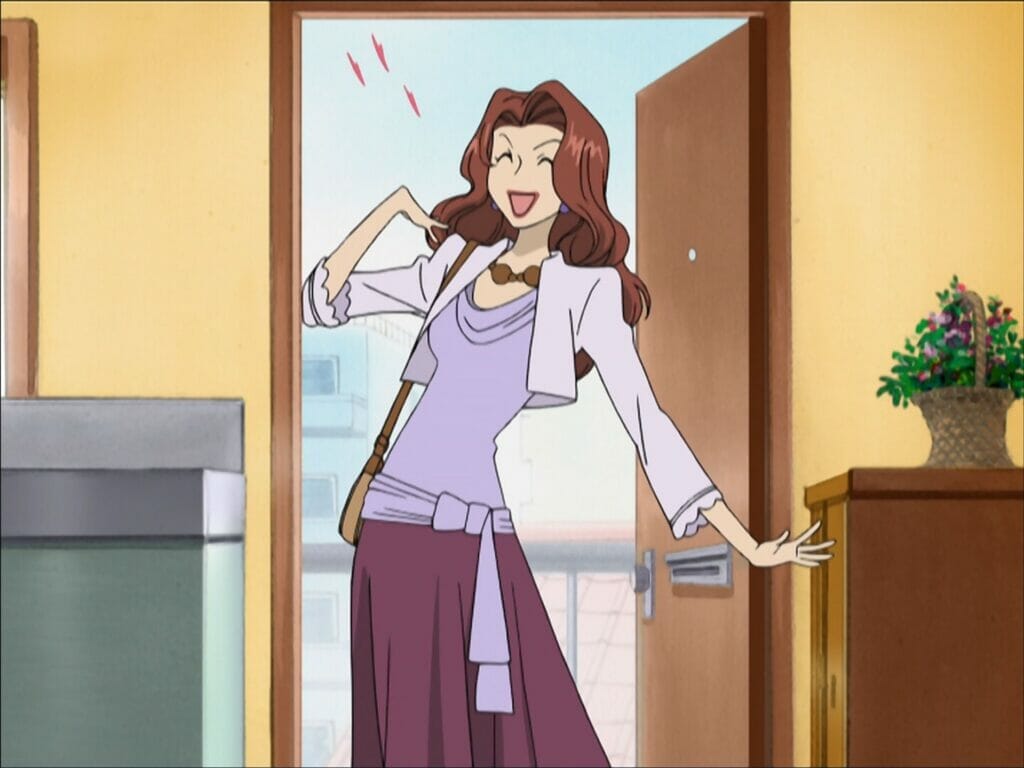
While there are many great places to start this discussion, I want to start with Haruhi’s father. Haruhi’s father, Ryouji “Ranka” Fujioka, is portrayed as a canonically bisexual drag queen who works at a bar. However, the series also chooses to, in the English subtitled and dubbed versions, call Ranka a “tranny” who works at a “tranny bar.” While at the time of the series’ creation in 2006, “tranny” was a debated word in the US but not yet categorized as a slur, it is now considered a slur used against trans and gender nonconforming people. Additionally, in the original Japanese, the series uses the word “okama” for Ranka, which is a slur used towards effeminate gay men. Like “tranny,” it was once considered to be a slang term by some, but is now regarded as a slur that can only be used and reclaimed by those who would be targeted by the term. Basically, Ranka can call himself a “tranny” or an “okama,” but no one else should be using those terms. Despite this, I’d say that Ranka’s characterization is a mostly positive one. Kyoya calls him a “beautiful person,” and none of the hosts have a problem with how he dresses or acts. In fact, in Episode 10, the show combats criticism against Ranka’s identity and his fatherhood by adding a scene in which a young Haruhi doesn’t want her father to attend a school event. While it is speculated it’s because she’s embarrassed that her father dresses like a woman, it is revealed that the event is on her father’s day off. Haruhi simply wants him to rest because his father regularly works himself to the point of exhaustion. So all in all, the series portrays Ranka in a positive way with its main problem being the usage of now outdated and negative language. If the show were modernized or rebooted, obviously the language would shift, instead only calling Ranka a drag queen. In my opinion, it would also be nice to see Ranka as a transfem character who participates in the art of drag and who uses pronouns other than he/him. They/she, perhaps.
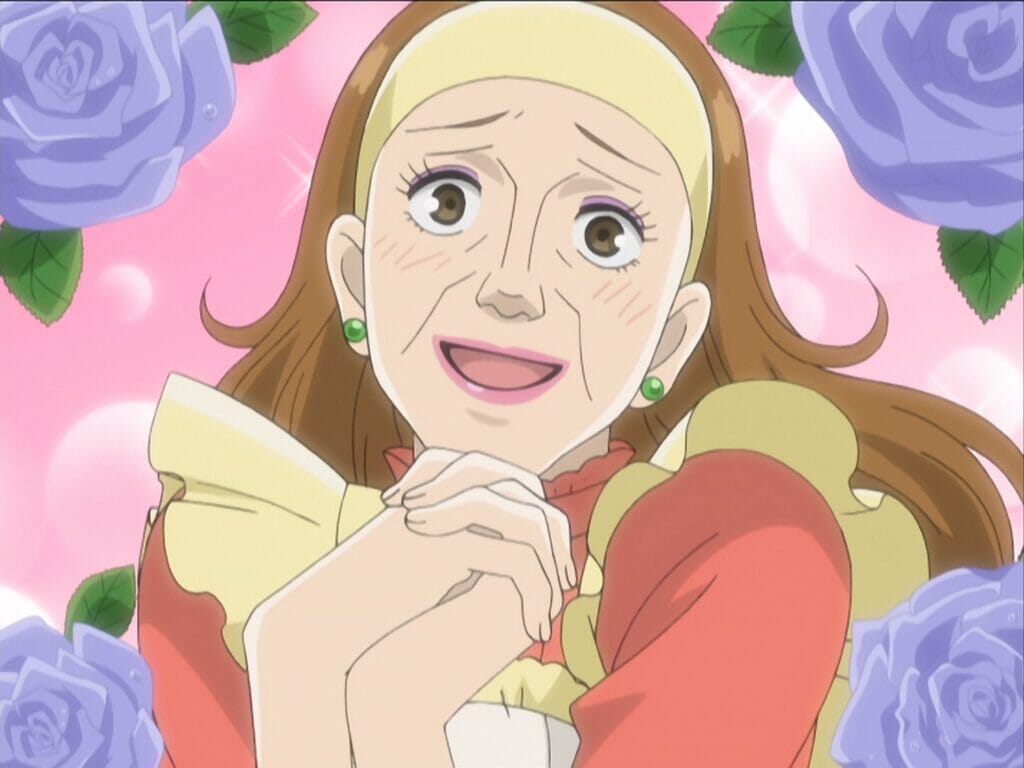
Next, I feel like I can’t talk about Ranka’s portrayal without at least mentioning Misuzu, Ranka’s bed-and-breakfast-owning friend. Misuzu is an ex-coworker of Ranka’s, and while always shown in beautiful dresses, ‘he/him’ pronouns are used for Misuzu, and his identity is never fully touched upon. Even though Misuzu’s outfit and life choices are, like Ranka’s, never questioned or negatively portrayed, it still seems odd to me, as if the series is saying that Misuzu could never be more than a man in a dress. Perhaps that is who Misuzu is. A gender-conforming cis man who is comfortable and accepted as such. Or perhaps Misuzu is a drag queen who happens to now run a bed and breakfast and still participates in the art of drag. Or maybe Misuzu is a trans woman and former, or even current, drag queen. Really, there are many different routes of positive representation that the series could take with Misuzu if only an identity were explicitly given to him.
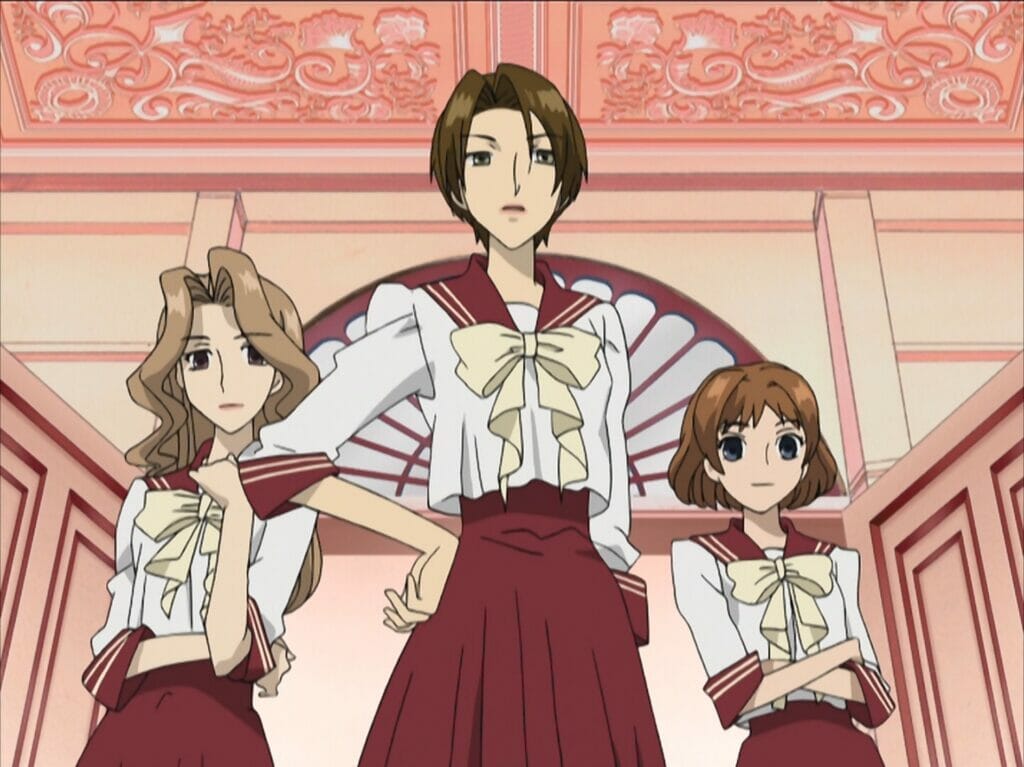
Speaking of drag, the Lobelia Girls of the Zuka Club also participate in a form of drag. However, this is not because of a desire to play with gender but to stay within the confines of it. The Zuka Club members are, sadly, the definition of the “predatory lesbian” stereotype. By that, I mean they are portrayed as invaders of the host club, hell-bent on kidnapping Haruhi and taking her away from her “horrible” club full of men. They insist that only relationships between women have any value, and are the poster children for “all men are evil.” Hell, the show even includes an image of the Zuka Club in which the girls are dressed in Nazi regalia and saluting a swastika-style “Women Flag.” They also give off major Trans Exclusionary Radical Feminist (or TERF) vibes by their insistence on Haruhi being a girl and through their constant insistence that only true women are worthy. So, to circle back, their dressing up as men for their club activities is not a play with gender but a way to enact their “only women can satisfy women” worldview in a way that feels safe and appealing to all women (including the straight ones that they see themselves as attempting to save).
All of this is to say that the portrayal of the Lobelia Girls makes me sad. In a show so full of queerness, why do lesbians have to be shown in such a horrifically negative way? In a modernized version, I’d like to see the Lobelia Girls handled one of two ways: 1) make them a better portrayal of lesbians by making them less predatory, or 2) make them explicit TERFs in order to criticize that specific group and include a better portrayal of lesbians within the Lobelia Girls Academy. I’d love for the show to express that not all lesbians are terrible. Just like all groups of people, there are terrible lesbians, but the terrible few should not be the standard of representation for all.
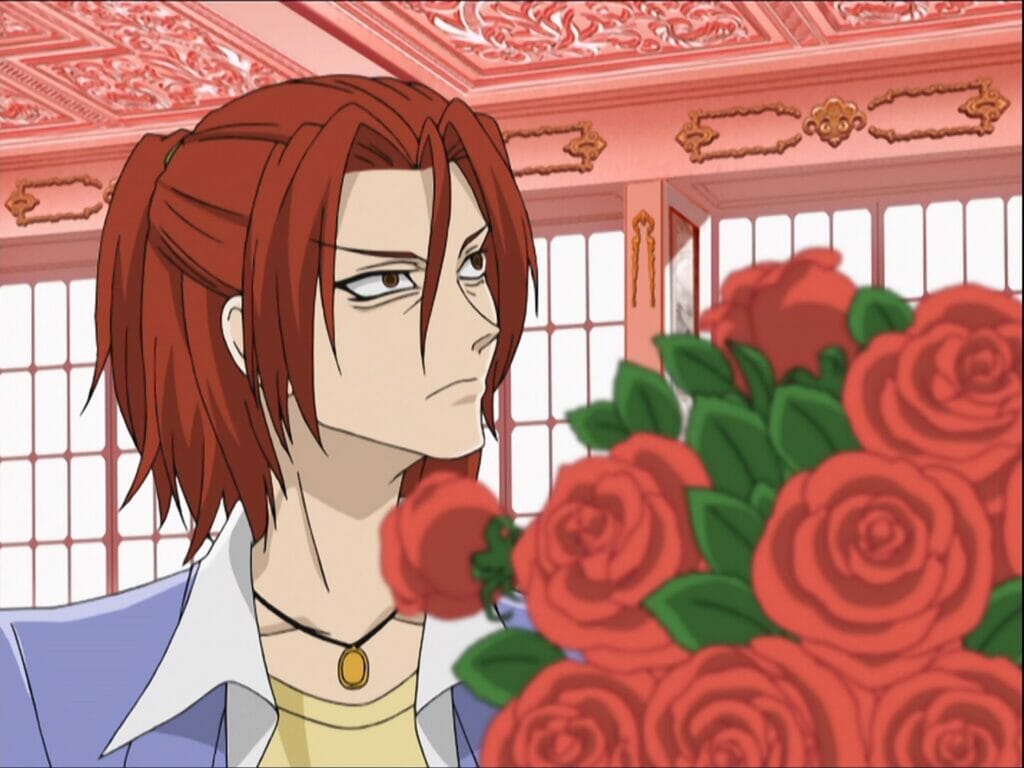
Now, before I get into the main cast, I’d like to mention a character/subplot that is too often forgotten. In Episode 22, Ritsu Kasanoda is introduced. A seemingly-tough guy and heir to a yakuza family (or syndicate), Kasanoda comes to the host club to be Mori’s apprentice. This leads him to be around the club, and Haruhi, quite often over the course of two episodes. I mention this because even when Kasanoda thinks Haruhi’s a boy, he appears to have a crush on her. He blushes around her, stumbles around her, and when he accidentally walks in on her changing, his only confusion comes from the fact that she’s not a guy. In fact, he acts the same way around her once her identity is revealed, blushing, stumbling, etc. While he may only choose to (unsuccessfully) pursue Haruhi after he finds out she’s a girl, I propose that this is because he feels like he’s only supposed to like girls due to the aforementioned view queerness as taboo. Based on his initial and then unchanging feelings towards Haruhi, I’d argue that Kasanoda is most likely pansexual and capable of loving people of any gender, although given he is confused over Haruhi being a girl, and the added layer of compulsory heterosexuality that comes with seeing queerness as abnormal, it could be argued that Kasanoda is gay. Either way, Kasanoda is undeniably queer, and Kasanoda would provide wonderful representation if this were addressed on-screen in some way.
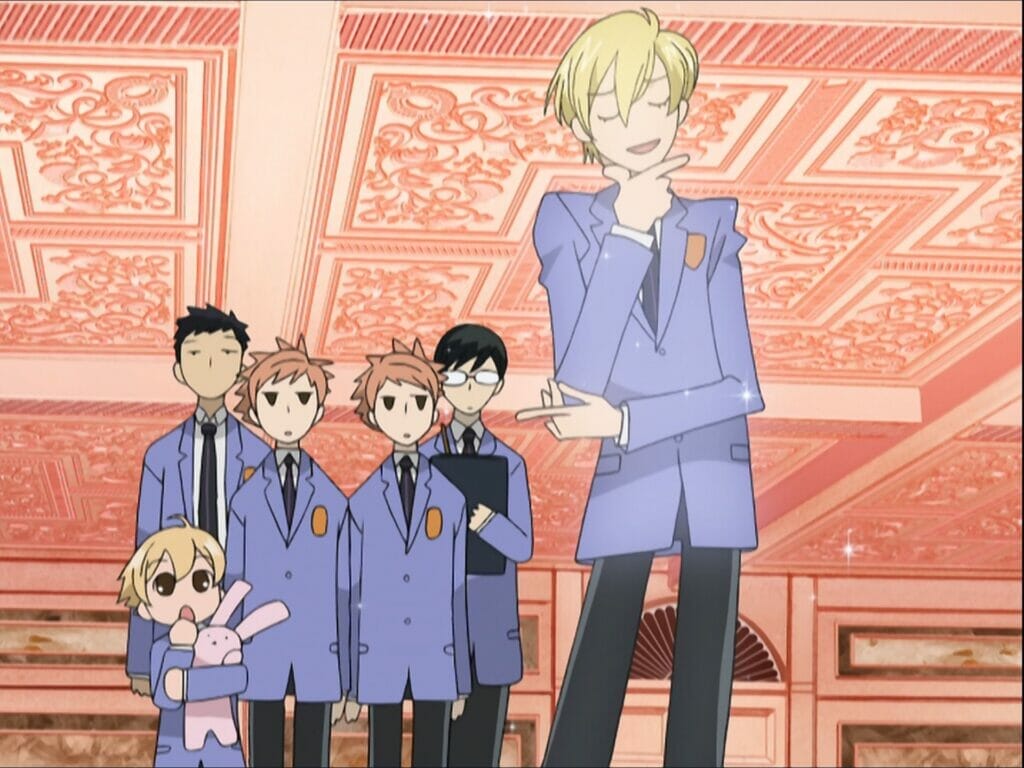
Now, onto the main cast, starting with the boys. To be honest, I could write for pages upon pages about the boy’s possible identities, citing very specific moments from the anime and the manga to justify my reasoning. However, this is not the space, and simply put: it’s all complex. In Episode 3, Tamaki dubs the rest of them the “homosexual supporting cast.” They dress in drag, they play up relationships with each other, Tamaki calls Kyoya “mommy,” Kyoya calls Tamaki “daddy,” and more. It’d be easy to say that they’re all queer in some way and have that be that. I don’t think that’s an accurate or fair reading of the boys, though. After all, they appear to play up “queerness” because it appeals to the girls that they invite to their club. I specifically say girls here because the boys question and/or are disappointed about any boy who shows up at their club. While Tamaki always tries to combat this by trying to engage with the boys who walk through the door and telling the others that all clients should be treated equally, the initial reaction and the knowledge that they are acting still lingers. Furthermore, Tamaki says to the Lobelia Girls that the only valid relationship is one between a (presumably cis) man and woman and seems not hateful towards them but simply confused by them. Finally, the boys also engage in the idea that Haruhi must dress like a girl because “she is one,” pushing the idea that there is no space for gender-nonconformity or possible gender-queerness, or because of their acceptance of Ranka and Misuzu and their participation in drag, that it is something that is only okay when it is at a distance or played with in an un-serious way. So they enact queerness because the girls they cater to want to see and fantasize over hot boys interacting with hot boys, but they don’t all understand queer relationships or people. It can be seen as a problematic appeal to a widely accepted fetishization of gay men, but at the same time, I truly don’t believe they’re all straight. So where does that leave us in terms of the representation they do or do not provide, or the representation they could potentially provide?
I’d say that the club, as a whole, is now problematic, fetishy, and queerphobic in the way it uses queerness as a guise and a fantasy fulfillment while refusing to even entertain the idea of actual queer people. You could say that maybe the hosts should remain but the clients should be men and women (and people who don’t identify as either). But arguments could be made about how that’s still “problematic” or even that it takes away a safe space for girls to engage with their fantasies. And while I’d love to also say give them at least one girl as a host, that would ruin the whole premise of the show, wouldn’t it? Unless the hosts and their clients were diverse in terms of gender and/or the hosts’ identities were explicitly stated, most of those problems would still remain. There’s no perfect solution without dissolving the series, I suppose, so I’d be more than happy to settle for at least a couple of explicitly queer hosts and accept the club as a space for contained and consensual fantasy fulfillment.
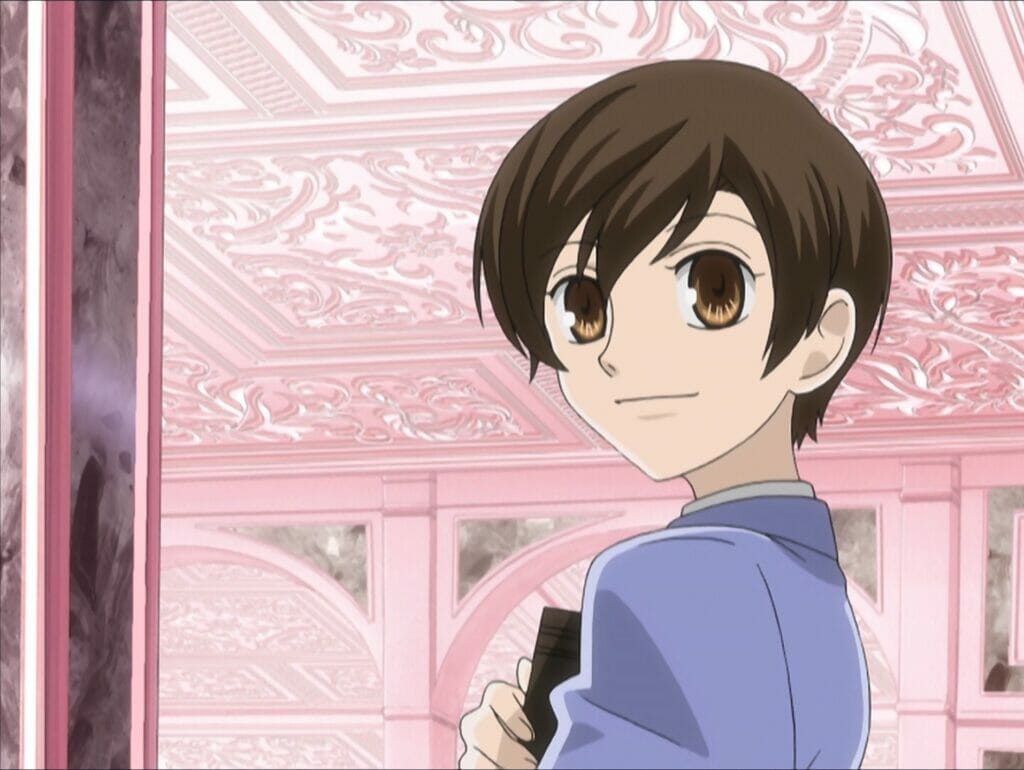
Last but not least, let’s dive into the show’s apathetic “heroine,” Haruhi Fujioka. Well, I say heroine and use ‘she/her’ for Haruhi because that’s what the show uses, but I feel like neither of those are accurate. The show first has us believe that Haruhi is a boy, and then after her “reveal,” the main throughline of the show is Haruhi pretending she’s a boy for the sake of the club. Except I’m not sure that Haruhi’s pretending. Not exactly. From the first episode, Haruhi states that she doesn’t care if people see her as a boy or a girl. She cares more about who a person is internally than who they are externally. Then throughout the series, she constantly reaffirms that she doesn’t exactly view herself as a girl and doesn’t see why it matters that she is a girl. Haruhi Fujioka is as gender apathetic as they come. Which is why, in a modernized version, I’d love to see Haruhi as non-binary and comfortable with any/all pronouns. I mean, it’s basically who Haruhi is now. Really, the only problem with the series in terms of Haruhi’s portrayal is the insistence from the club, the Lobelia Girls, and Ranka that she has to be feminine or act like a girl “because she is one.” Even then, I wouldn’t necessarily exclude all of these moments. The show could have Haruhi push back against this, creating a growth arc for the other characters in which they learn to accept Haruhi’s identity and learn about non-binary identities in general.
I also believe that Haruhi is both pan and demi-romantic and could be a good representation for people who identify as such. After all, she didn’t mind kissing a girl in episode 2. She explicitly states that it’s fun to have a bunch of girls fuss over her. She also doesn’t seem disinterested in guys, but she sure is oblivious towards them. Twice in the show, once with Arai in Episode 15 and once with Kasanoda in Episode 23, she rejects guys unknowingly. She doesn’t see them as anything more than friends, but in both cases, she only knew them for a short period of time. By the end of the show, though, she practically ends up with Tamaki, who she’s known for much longer. I think Haruhi’s gender apathy and focus on who a person is gives her the capacity to be attracted to anyone, but I do think that in order to form a relationship, she needs a strong bond with someone.
All in all, Ouran High School Host Club is a wonderful and very queer show, one that I will always look back on fondly. It suffers now from time, the evolution of queer language, and the lack of tolerance for certain portrayals of queer characters (yay for demanding better representation!). None of this means that we should just forget Ouran, though. There is still a lot of good in it, and anything can be painted as “bad” when closely inspected. If anything, Ouran should now be used as a queer conversation starter and as a place to grow from, not stagnate within.




